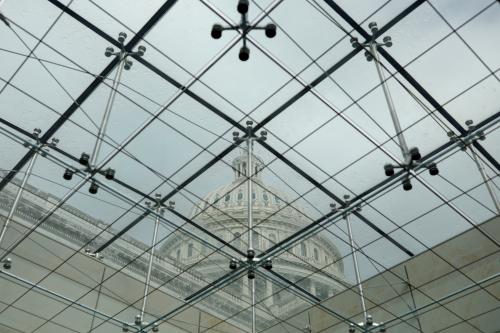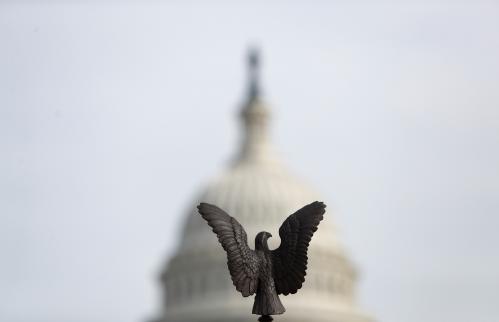Lest the Congress and the White House have any doubt, the American people overwhelmingly understand that the U.S. response to COVID-19 must be not just within our borders, but global.
To put the message in brief, Congress has so far spent 0.1 percent—that’s not one percent, but one-tenth of one percent—of its total COVID-19 response on international actions, roughly $2.4 billion out of $2.4 trillion. But a recent poll shows that the American people understand the need for more robust international engagement and that foreign assistance is a key instrument in attacking the pandemic. They overwhelmingly endorse international engagement and support for other countries as being in our national interest and a crucial piece to bring the pandemic under control.
The U.S. Global Leadership Coalition (of which I serve as chair emeritus) recently released a poll that reveals the American people, across all political affiliations, understand we are part of an interdependent world and only by working collectively will we move past the most dire international conflagration since World War II—with the same collective effort that restored the world to peace and prosperity after that war ended.
It is not an overstatement that COVID-19 has aroused in the American people an understanding of our global interdependence, to a level never before recorded. In response to the two questions of how important do you think it is for the United States to work (1) with other countries to fight diseases that could spread globally and (2) to limit the spread of coronavirus (COVID-19) in other countries, “important” polled 96 percent and 93 percent, respectively—unheard of levels.
Another question asked respondents to choose between alternative choices: (A) COVID-19 shows we can be vulnerable and need to make a change in the way we fight infectious diseases in the U.S. and around the world, or, alternatively, (B) it is probably a one-time event and there’s no need to make changes to our approach to public and global health. The first option polled at 90 percent, the second at 10 percent—again, an unheard of response level.
Seventy-seven percent of those polled believe that Americans will not be safe from further outbreaks if COVID-19 continues to spread elsewhere and 80 percent believe that assistance to other countries to fight diseases makes us safer.
Along with strong support for additional funding for small businesses and families, the poll results reveal overwhelming support, across all political persuasions, for attacking the pandemic through foreign assistance. When informed that about $10 billion to $15 billion, or 1 percent, of a new funding package to fight the pandemic would go toward foreign assistance, 86 percent were in favor—47 percent thought that was about the right level and 39 percent too little. Only 13 percent thought it was too much.
Until now, the Congress has enacted four bills appropriating funds to combat COVID-19. Table 1 shows how they sum to $2.4 trillion, of which $2.365 billion (less than 0.1 percent) is for working outside our borders.
Table 1. US federal COVID-19 response (in millions of dollars)
| Total Cost* | IAB Funding | IAB Share | |
| CV1 | 8,300 | 1,250 | 15.1 percent |
| CV2 | 192,000 | – | 0.0 percent |
| CV3 | 1,723,000 | 1,115 | 0.1 percent |
| CV3.5 | 483,000 | 0.0 percent | |
| Total | 2,406,300 | 2,365 | 0.10 percent |
| * Includes both spending and revenue provisions. | |||
Source: U.S. Global Leadership Coalition
Notes: IAB = International affairs budget. CV1 = First COVID bill.
Last Friday, the House passed a fifth bill appropriating an additional $3 trillion. Were the Congress to move on that amount and devote $10 billion to $15 billion to our international efforts, that would amount to only 0.3-0.45 percent of that bill and bring the international total to only around 0.2-0.3 percent of all five bills—far less than the 1 percent that a large majority of the American populace is willing to support.
As Congress responds to the pandemic, they should pay attention to the understanding of the American people that this crisis needs to be fought both at home and abroad. It is clear that the American people are ready to support working with other countries to stop the pandemic everywhere. The health and safety of the American people, along with our compassion, demands no less.
The Brookings Institution is committed to quality, independence, and impact.
We are supported by a diverse array of funders. In line with our values and policies, each Brookings publication represents the sole views of its author(s).







Commentary
Americans want global engagement on fighting COVID-19
May 21, 2020